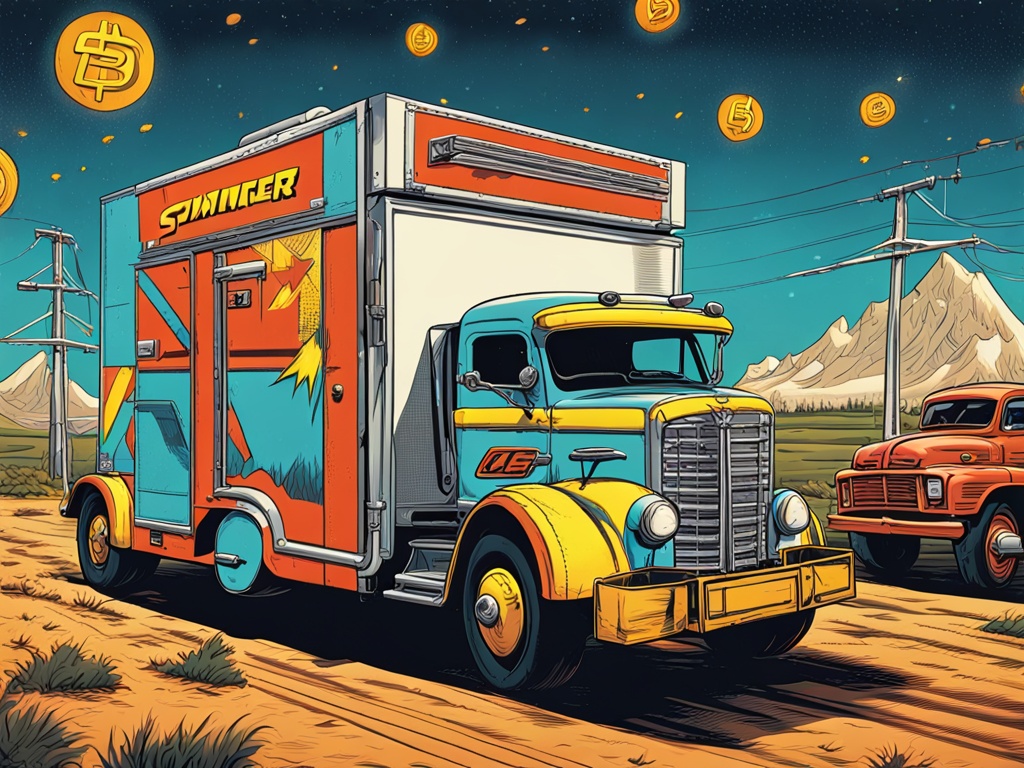Innovative Approaches in Electrifying Heavy-Duty Trucks: A Closer Look 🚚⚡
This article explores the exciting developments in electrifying heavy-duty trucks, focusing on how companies are overcoming significant challenges in the sector. Range Energy, a Californian startup, is tackling these issues by introducing electrified trailers that can enhance the efficiency of tractor-trailer systems. With a growing emphasis on sustainability, this year could mark a pivotal moment for the trucking industry.
The Challenge of Electrifying Heavy-Duty Trucks 🚛
While electric cars and smaller delivery trucks are making significant progress in electrification, heavy-duty vehicles like tractor-trailers encounter more substantial barriers. The primary hurdles involve the tractor component, which requires more power than the current charging infrastructure can sustain, along with lengthy charging times that complicate operations.
Major manufacturers, including Volvo, Freightliner, and Tesla, have started introducing electric tractor-trailer trucks. However, this segment remains small and inefficient. Though big rigs represent only about 10% of all vehicles on the road, they contribute nearly 30% of total vehicle carbon emissions. Therefore, innovation in this area could have a significant positive impact on the environment.
Range Energy: A New Perspective on Electrification 🌟
Range Energy has opted to focus on electrifying the trailers rather than the tractors. Their innovative approach involves designing trailers that not only function independently but also contribute to their own propulsion. This reduces the load that the tractor must pull, leading to enhanced efficiency.
CEO Ali Javidan explains, “Everything built into the tractor is designed to manage the trailer’s load effectively. Our commitment is to electrify the trailer in a manner that has never been attempted before.” This ambitious vision includes integrating batteries, a motor that powers one of the trailer’s dual axles, and a “smart kingpin” that significantly boosts efficiency.
Demonstrating Innovative Technology 💡
During a demonstration, Javidan showcased the system’s impressive capabilities. “When I engage this button, the trailer intuitively follows my movement,” he stated, indicating that the system adapts to various tractor models, whether they are older models like Peterbilt or newer designs from Tesla. The goal is for the trailer to appear weightless, resulting in easier handling for drivers.
The electrified trailers not only provide propulsion but also have built-in refrigerating capabilities and can power onboard communication and security systems, all at a lower cost compared to traditional diesel systems. Javidan asserts, “Implementing our technology in a fleet of 3,000 trailers could lead to a reduction of 100 million pounds of CO2 emissions annually, translating to around $50 million in fuel savings.”
Real-World Pilot Programs in Action 📊
Northern Refrigerated Transportation is currently testing Range trailers in California. They had previously explored electric tractors but faced challenges due to extended charging times. According to COO Ricky Souza, “Range trailers fit better into our operations since we load them overnight while they charge, eliminating the need for drivers to wait.”
Nonetheless, these companies still face critical obstacles in fully electrifying their fleets of over 300 trucks. Souza notes, “Significant infrastructural challenges must be addressed, such as providing power to facilities and evaluating the initial costs of electrification against potential fuel savings.”
The Future of Electrification in the Trucking Sector 🚀
Range Energy has successfully secured $31.5 million to support its innovative initiatives, backed by R7, UP.Partners, Trousdale Ventures, and Yamaha Motor Ventures. Interest in the startup is largely due to its unique approach to addressing the electrification challenges associated with tractor-trailers. Tyler Engh, founder of R7, highlights the scale of the trucking industry: “Trucks carry 70% of all freight in the U.S., yet no one has innovated around the trailers themselves. By electrifying them, we can accelerate the transition to hybrid or fully electric fleets that currently rely on diesel.”
With the existing charging infrastructure for electric vehicles still lagging, Javidan emphasizes that trucking companies could maximize the amperage available at loading docks, as demonstrated by Northern Refrigerated Transportation’s pilot. He also adds that Range Energy can configure its battery packs to be more comparable to those found in passenger vehicles, as opposed to the oversized batteries traditionally found in large commercial vehicles.
Conclusion: Transforming the Landscape of Trucking ⚙️
As the trucking industry progresses towards electrification, Range Energy’s innovations offer promising solutions to longstanding challenges. Addressing these key areas could pave the way for a more sustainable and efficient future for heavy-duty trucks.
For further insights and developments related to electrifying the trucking industry, consider these sources:





 By
By
 By
By
 By
By

 By
By